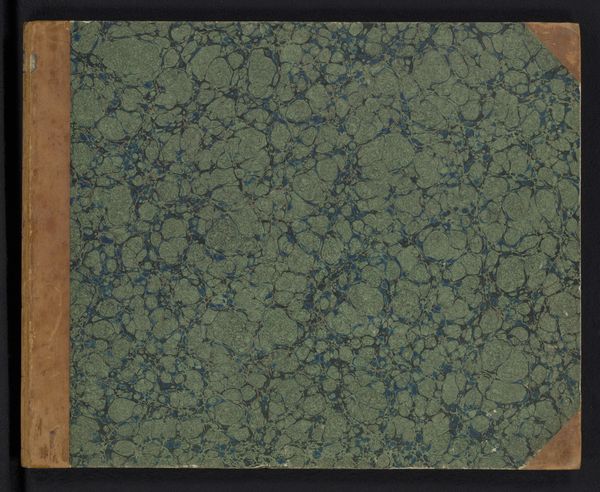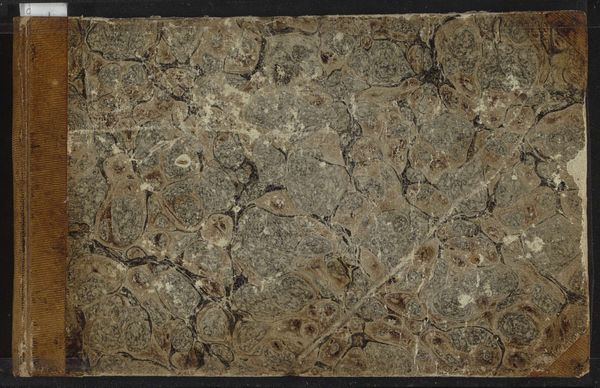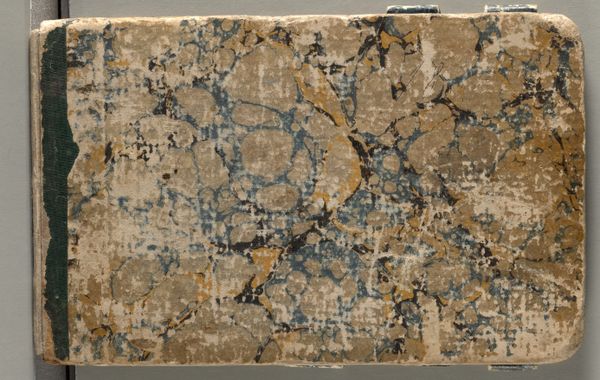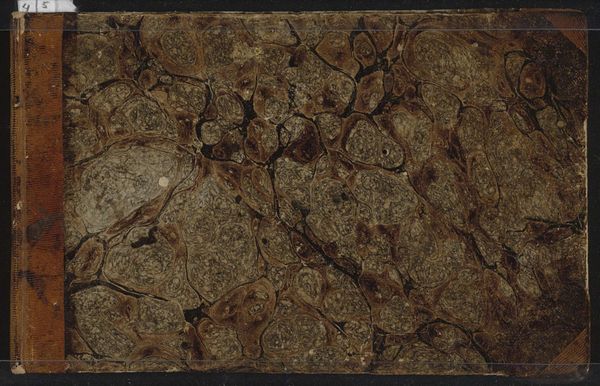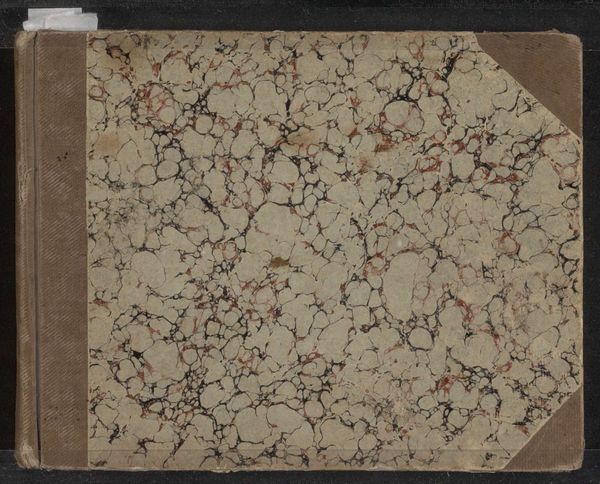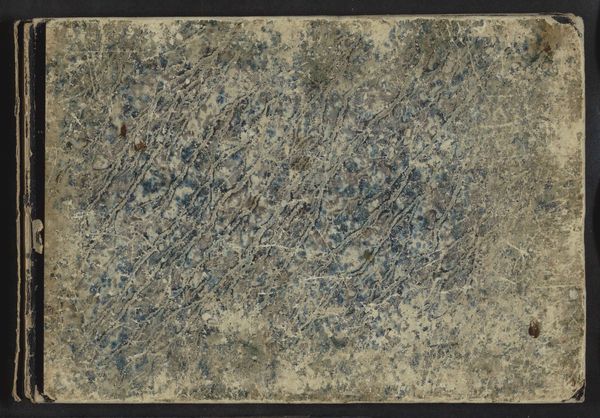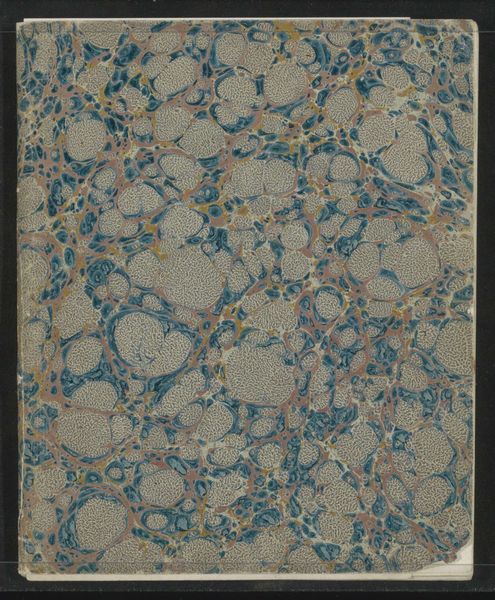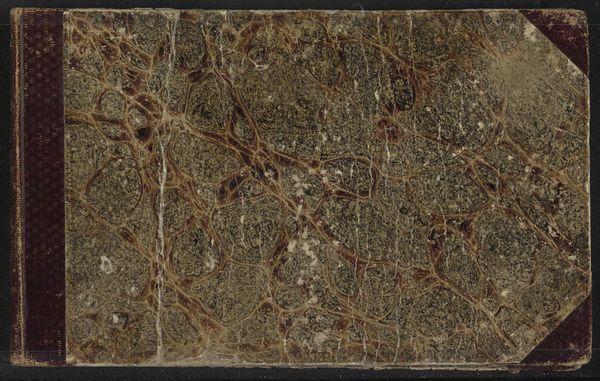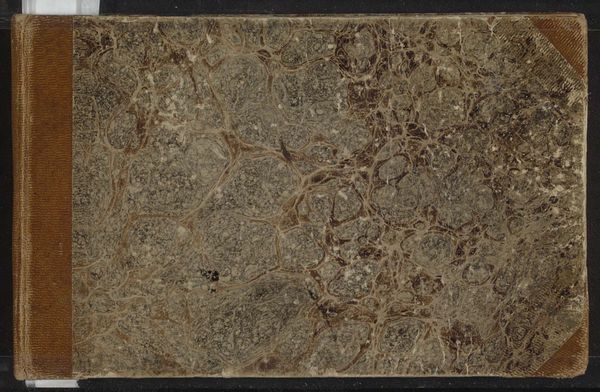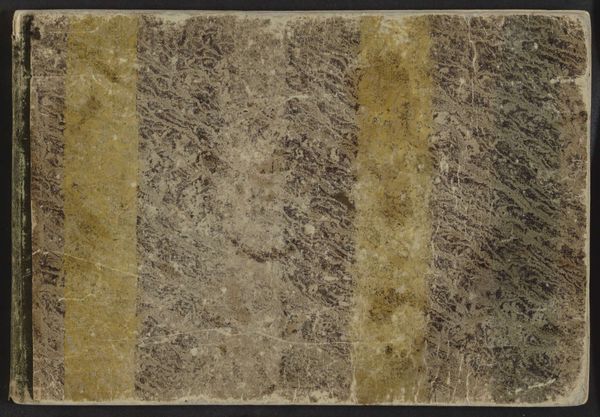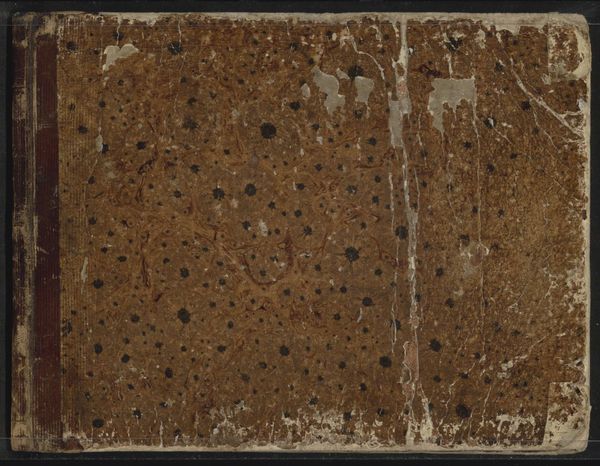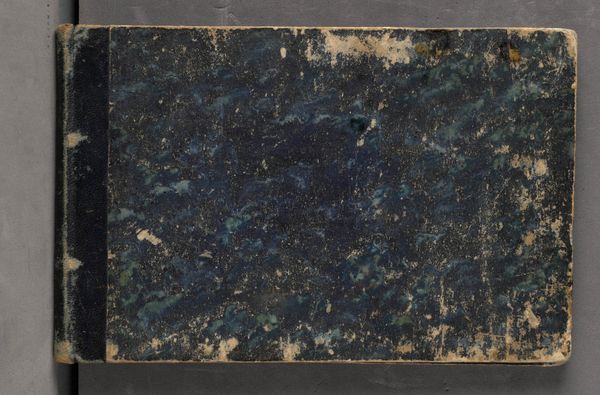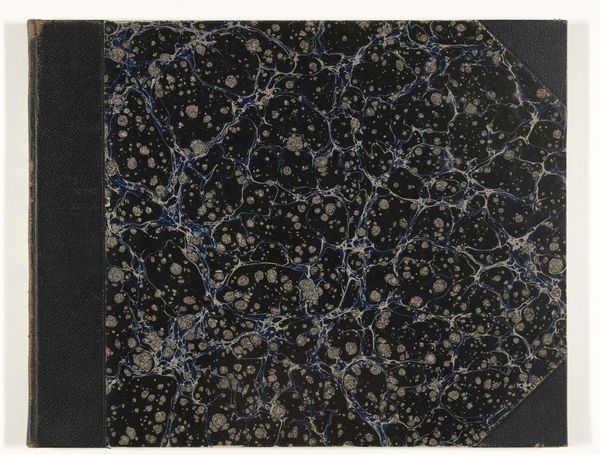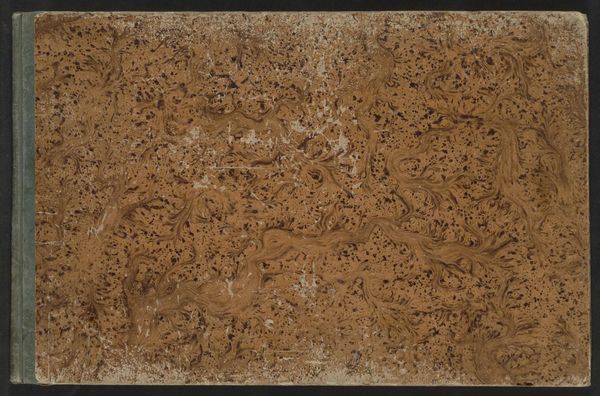
mixed-media, paper, watercolor
#
mixed-media
#
water colours
#
paper
#
watercolor
#
decorative-art
#
mixed media
#
watercolor
Dimensions: height 135 mm, width 223 mm, thickness 14 mm, width 440 mm
Copyright: Rijks Museum: Open Domain
Editor: This is "Sketchbook with 74 pages," created by Arnoldus Johannes Eymer between 1803 and 1818, using mixed media including watercolors on paper. It has a fascinating marbled cover. It feels almost geological, like looking at the veins of some strange mineral. What is your take on it? Curator: Well, thinking historically, the early 19th century saw an increased interest in the natural world, influencing art. Sketchbooks like these weren't just for artists; scientists and amateur naturalists used them to record observations. What purpose might this sketchbook serve considering this context? Was it simply for artistic studies, or did it have another, perhaps scientific, function? Editor: I suppose I hadn’t considered it beyond the aesthetic! So it could have been used for something functional. Does the marbled cover connect with this function at all? Curator: Definitely! Marbling as a bookbinding technique had practical roots. It helped protect the paper from wear and tear, extending the book's life, especially crucial for field work or constant use. Additionally, think about the politics of image making. What did it mean to create your own records rather than rely on existing prints? Who had access to these kinds of personalized records? Editor: That is interesting; this marbled paper makes each one unique, and makes me wonder what is hiding between the covers and who used it and what purpose the drawings served. Curator: Exactly! This book becomes less of a simple art object, and more of a symbol of scientific inquiry, individual expression, and perhaps even social standing in that era. How does this affect your interpretation now? Editor: I now view the book as an archive of observations as much as a container for personal creative ideas! A valuable piece of cultural history indeed!
Comments
No comments
Be the first to comment and join the conversation on the ultimate creative platform.
